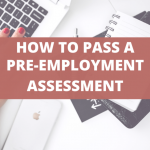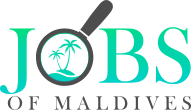Most Common Job Interview Questions
If you know exactly what questions a hire management boss will ask you in the next interview, couldn’t that be great?
Unfortunately, we can’t read minds, so we send you the next best thing: a compilation of around 50 of the interview questions most often posed and tips about how to address them anywhere.
Though we don’t advise to answer and query (please don’t, in fact), we advise you to invest a little time comfortably asking what you are asking, what recruiting managers are really searching for in the answer, and what it takes to prove yourself to be the correct individual.
When you talk about these standard interview topics, it is vital that you not memorize responses to any question but have a general understanding of the important points that you want to communicate and follow when addressing them in a very normal dialogue style.
Commonly asked questions
These commonly asked questions concern the critical recruitment managers, who what applicant is, whether you are suited for the role and at what you’re good at. These questions can not be answered precisely in these terms, but if you have solutions to them in mind, you will be ready for everything that the interviewer takes your way.
1. Tell Me About Yourself
This is one of the earliest question you will most likely be asked. Prepare to learn about yourself and why you’re the best choice for the job. The interviewer needs to see if you’re the best candidate for the role.
Try not to provide too much or too little personal information while answering questions about yourself. You can begin by sharing some of your non-work-related personal interests and memories, such as a favorite hobby or a brief account of where you grew up, your upbringing, and what motivates you.
2. Why Do You Want This Job?
What makes you a good candidate for the job? What would you do if you were hired? This interview question allows you to demonstrate to the interviewer your knowledge of the position and the industry, so do your homework beforehand and thoroughly research the company, its goods, services, history, and purpose.
Be clear on what qualifies you for this role, and list facets of the organization and position that apply to you the most.
3. Why Should We Hire You?
Are you the most qualified applicant for the job? The recruiting manager needs to know if you meet any of the criteria. Prepare to justify why you are the best candidate for the job.
Make your answer a positive, succinct, and concentrated sales pitch outlining what you have to give and why you should be hired. This is a good time to go through the job description’s qualifications and criteria so you can craft an answer that matches up with most of what the interviewer is seeking for.
4. What Is Your Greatest Strength?
This is one of the questions that employers almost often pose to assess your suitability for the job. When asked about your greatest qualities, it’s critical to explore the characteristics that prepare you for that particular position and set you apart from other applicants.
Remember to “show” rather than “say” while answering this question. For example, rather than saying that you are a great problem solver, share a story that illustrates this, preferably using an anecdote from your professional career.
5. What Is Your Greatest Weakness?
Another popular concern from interviewers is about the shortcomings. Make an effort to frame your responses around the good facets of your talents and abilities as an employee, transforming apparent “weaknesses” into strengths.
This query allows you to demonstrate to the hiring manager that you are well suited for the role. Aside from knowing if you have the necessary credentials, the recruiting manager needs to know how you can take on assignments and learn new roles.
You may also have clear explanations of how you identified a flaw and took action to fix it, as well as examples of strengths you have learned.
6. Why Do You Want to Leave Your Job or Left?
Be ready to respond to this issue. You’ll need to offer a truthful response that represents your personal situation while remaining optimistic. And if you resigned due to difficult conditions, now isn’t the time to share so much detail with the interviewer.
The interviewer is curious as to why you quit your previous job and why you want to work for their business. When asked why you are leaving your current job, stick to the truth, be direct, and reflect on the future, particularly if your exit was not in the best circumstances.
7. What Are Your Salary Expectations?
What kind of pay are you asking for? Money questions are notoriously difficult to answer. You don’t want to undersell yourself or price yourself out of a career opportunity. Employers are constitutionally barred in some areas from telling you about your pay background, although they may inquire how much you want to be paid.
Prepare for the meeting by doing research such that you can name a wage (or salary range) if requested. There are a number of free online pay calculators available that can provide you with a fair selection depending on your job description, boss, background, qualifications, and place.
8. How Do You Handle Stress and Pressure?
What have you been doing when stuff at workplace don’t go according to planned? How do you handle tense situations? The boss is interested in how you deal with job pressures.
Do you perform well under pressure? Can you excel under pressure, or do you want a more laid-back job? What do you do if anything goes wrong? The easiest way to answer this question is to provide an explanation of how you effectively dealt with tension in a previous role.
Avoid saying that you never or only sometimes face tension. Rather, frame your response in a way that recognizes job tension and describes how you’ve dealt with it, or even using it to your benefit.
9. Describe a Difficult Work Situation or Project That You Overcame.
When it comes to dealing with a tough situation, there is no right or wrong answer. The recruiting manager would be able to tell your job style and problem-solving skills based on how you respond. It will help decide if you fit in with the business and are a good fit for the job.
The interviewer is interested in how you behave when faced with a tough decision. As with the tension issue, be expected to accept an example of what you did in a difficult situation. It is important to share information in order to make the narrative credible and entertaining.
10. What Are Your Goals for The Future?
Can you change jobs frequently? Or do you want to stick with the firm for the far future? Do your future aspirations correspond to the traditional career course for someone working for this position?
This question is intended to determine whether you want to stay or move on as soon as you see a better opportunity. Keep your response based on the work and the business, and remind the interviewer that the role is a good one for your protracted goals.



